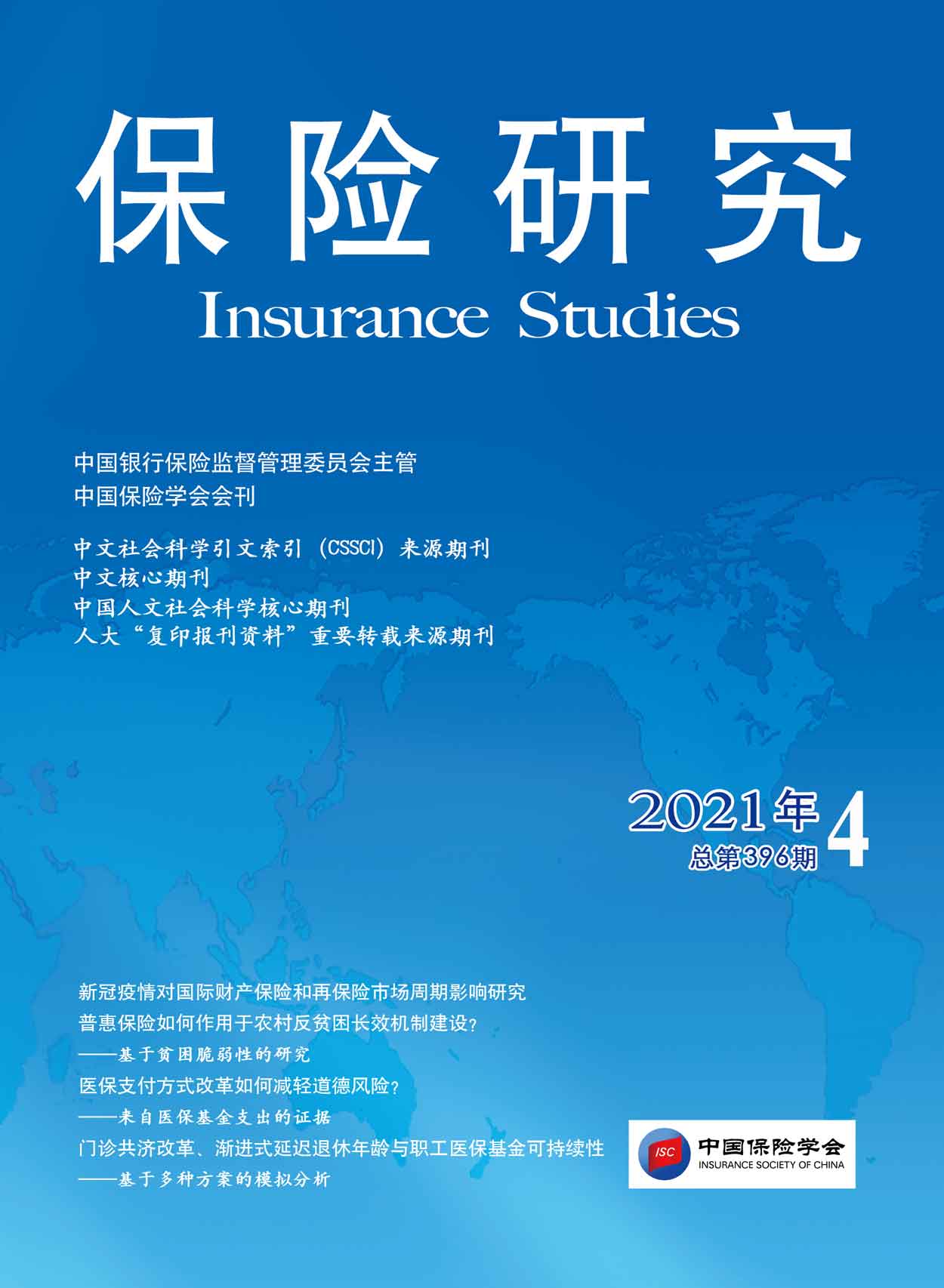
《保险研究》20210406-《门诊共济改革、渐进式延迟退休年龄与职工医保基金可持续性——基于多种方案的模拟分析》(曾益、李姝、张冉、徐翊)
[中图分类号]F840.684 [文献标识码]A [文章编号]1004-3306(2021)04-0091-15 DOI:10.13497/j.cnki.is.2021.04.006
资源价格:30积分
- 内容介绍
[摘 要]随着老龄化程度加深,我国职工医保基金支付压力凸显,那么即将实施的门诊共济改革和渐进式延迟退休年龄政策对职工医保基金可持续性的影响如何?本文运用精算模型研究发现,若没有任何政策干预,职工医保基金分别于2027年和2034年开始出现当期赤字和累计赤字;若自2022年开始实施“部分门诊共济”,门诊费用报销比例为50%或75.6%,基金开始出现累计赤字时点分别推迟5年和3年,若自2022年开始实施“完全门诊共济”,门诊费用报销比例为50%或75.6%,基金开始出现累计赤字时点分别推迟12年和8年;如果进一步实施“女先男后”的延迟退休年龄方案,基金开始出现累计赤字时点延后4~16年,如果进一步实施“男女一起”的延迟退休年龄方案,基金开始出现累计赤字时点延后7~17年。可见,门诊共济改革和渐进式延迟退休年龄政策可以提高职工医保基金可持续性。据此,我国应尽快落实门诊共济改革,在此基础上提高保障水平,并进一步实施渐进式延迟退休年龄政策。
[关键词]门诊共济改革;延迟退休;职工医保;基金可持续
[基金项目]国家社科基金后期资助项目“老龄化背景下职工医疗保险基金可持续性研究”(19FRKB002);湖北省社科基金“人口老龄对我国城镇职工医疗保险基金可持续性的影响研究”(2015033);中央高校基本科研业务费项目“减税降费背景下缴费率下调对职工养老保险财政责任的影响研究”(2722020JCT028)。
[作者简介]曾益,中南财经政法大学公共管理学院副教授,硕士生导师,研究方向:社会保险精算;李姝,中南财经政法大学公共管理学院硕士研究生;张冉,中南财经政法大学公共管理学院硕士研究生;徐 翊(通讯作者),武汉市第六医院(江汉大学附属医院)副主任医师。
Outpatient Mutual Assistance Reform,Gradual Delay of Retirement Age and Sustainability of Medical Insurance Fund for Urban Employees—A simulation analysis based on multiple scenarios
ZENG Yi,LI Shu,ZHANG Ran,XU Yi
Abstract:With the aggravation of the population aging,the payment pressure of China′s medical insurance fund for urban employees becomes more and more prominent.So what are the impacts of the upcoming out-patient mutual assistance reform and the retirement postponement policy on the sustainability of the employees′ medical insurance fund? This paper used actuarial model to find that:firstly,when there is no policy intervention,the current deficit and cumulative deficit will appear in 2027 and 2034 respectively;secondly,if we start to implement “partial outpatient assistance” in 2022,when the reimbursement ratio of general outpatient expenses is 50% and 75.6%,the accumulated deficit of the fund will be postponed for 5 years and 3 years respectively.If we start to implement “complete outpatient assistance” in 2022,when the reimbursement ratio of outpatient expenses is 50% and 75.6%,the accumulated deficit of the fund will be postponed for 12 years and 8 years respectively;thirdly,if we further implement the "female first male later" retirement postponement scheme,the accumulated deficit of the fund will be delayed by 4-16 years.If we implement the "male and female together" scheme,the accumulated deficit of the fund will be delayed by 7-17 years.It can be seen that the out-patient mutual assistance reform and the gradual delaying of the retirement age can improve the sustainability of the employee medical insurance fund.Therefore,China should implement the outpatient mutual assistance reform as soon as possible,improve the level of protection on this basis,and gradually delay the retirement age.
Key words:outpatient mutual assistance reform;retirement postponement;medical insurance for urban employees;fund sustainability
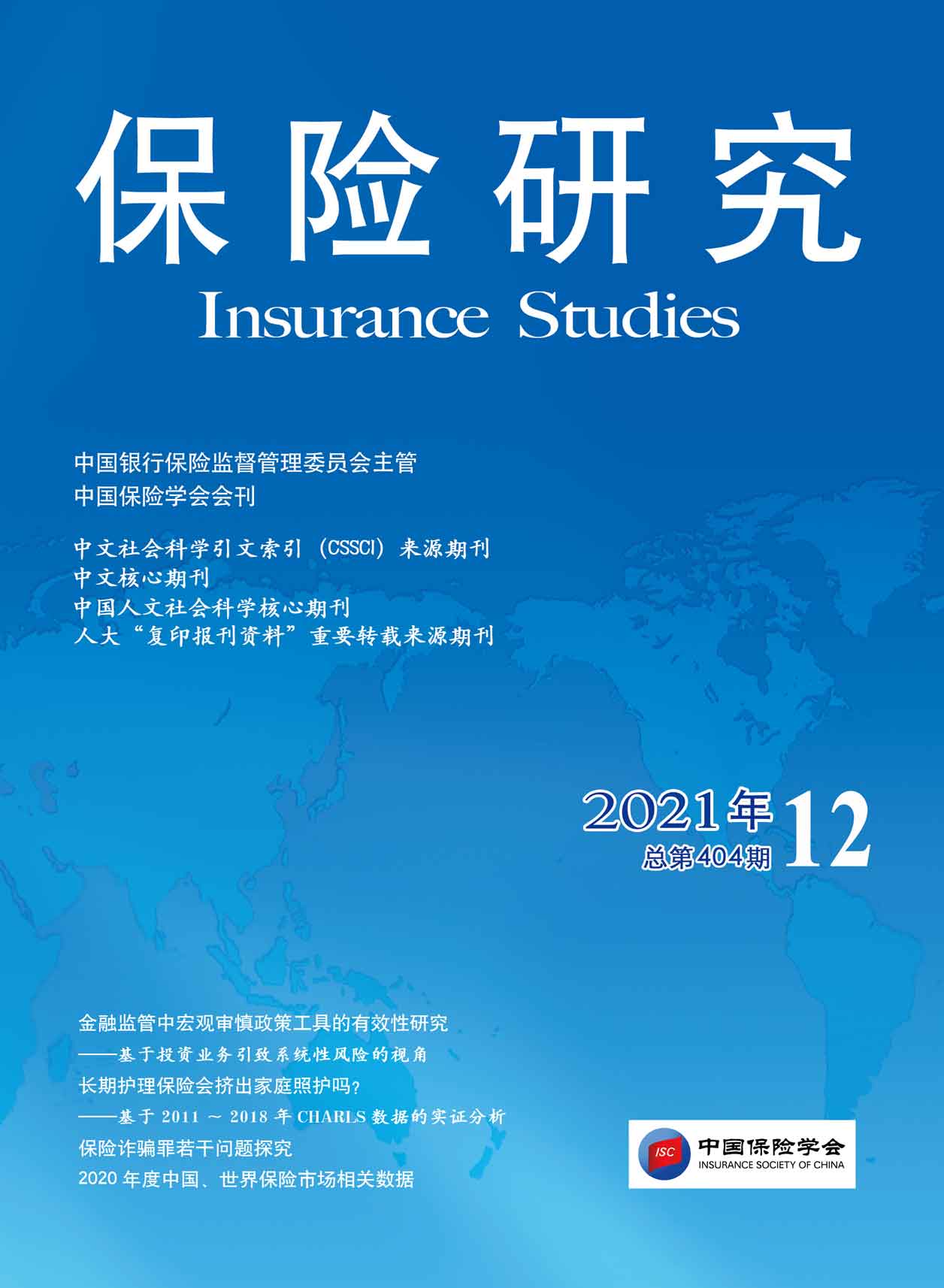
《保险研究》20211201-《金融监管中宏观审慎政策工具的有效性研究——基于投资业务引致系统性风险的视角》(邹奕格、粟芳)
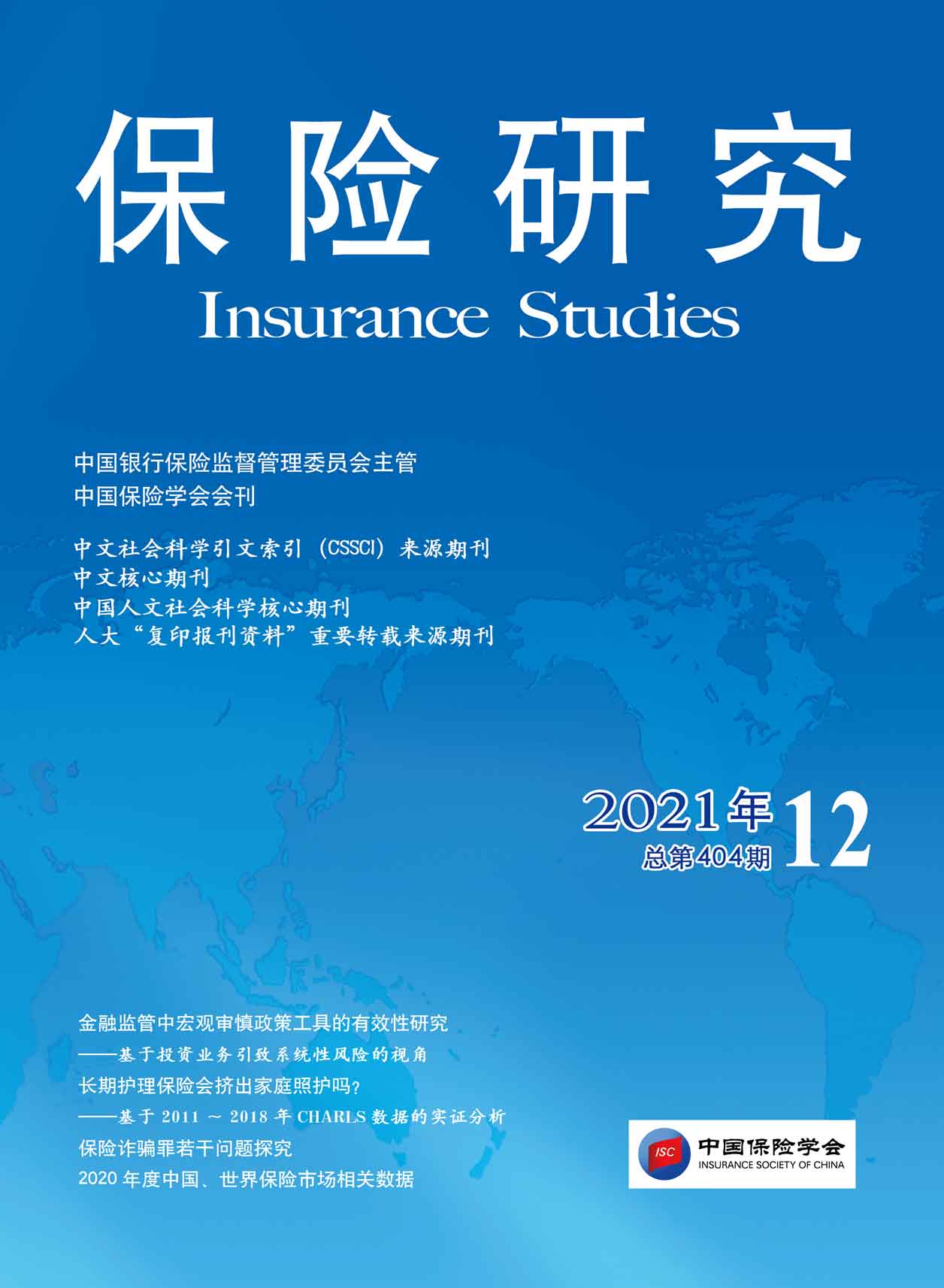
《保险研究》20211202-《长期护理保险会挤出家庭照护吗?——基于2011~2018年CHARLS数据的实证分析》(朱铭来、何敏)
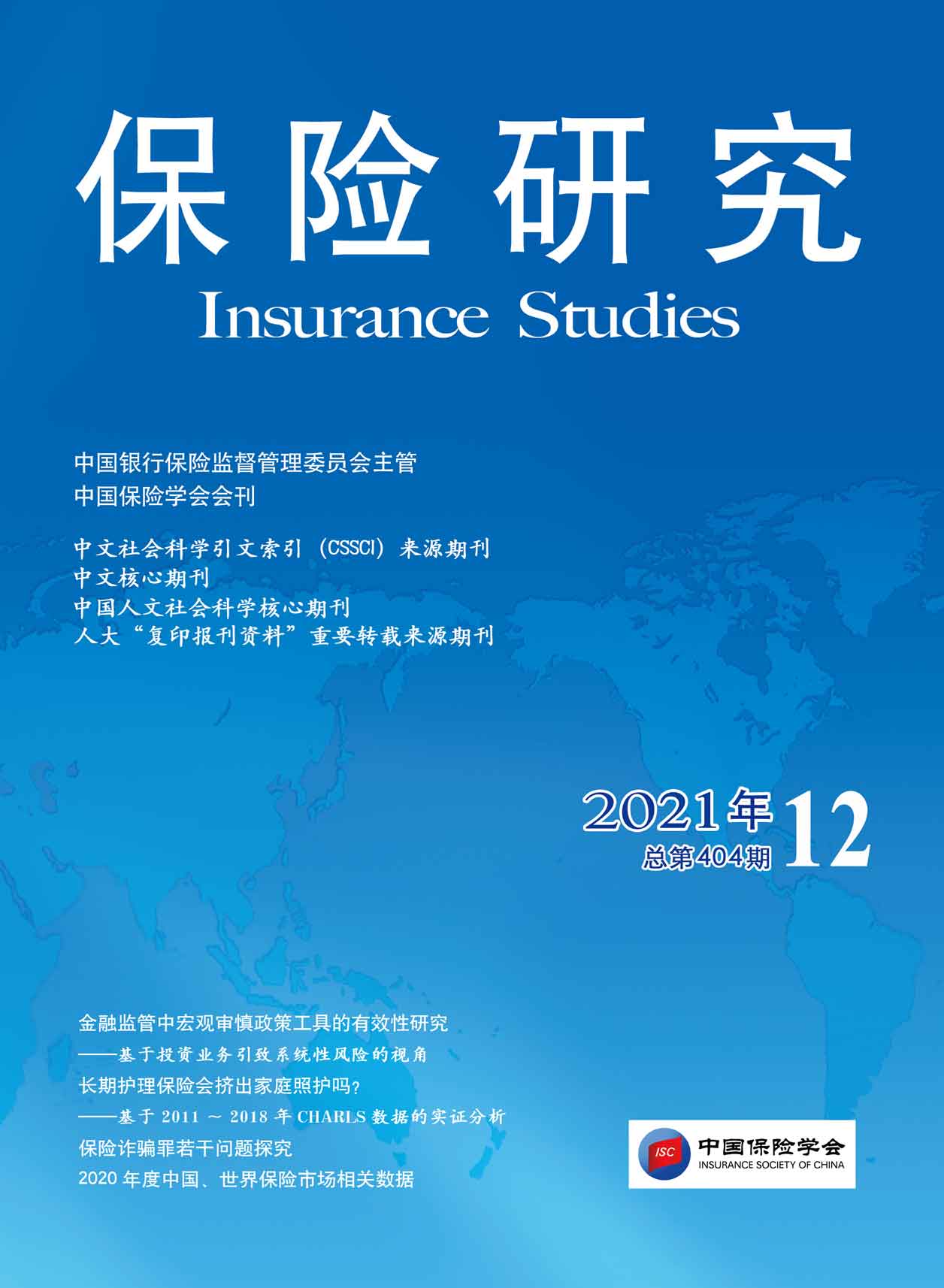
《保险研究》20211203-《参与农作物保险是否促进农户农地转入?——基于内蒙古的微观实证》(柴智慧)
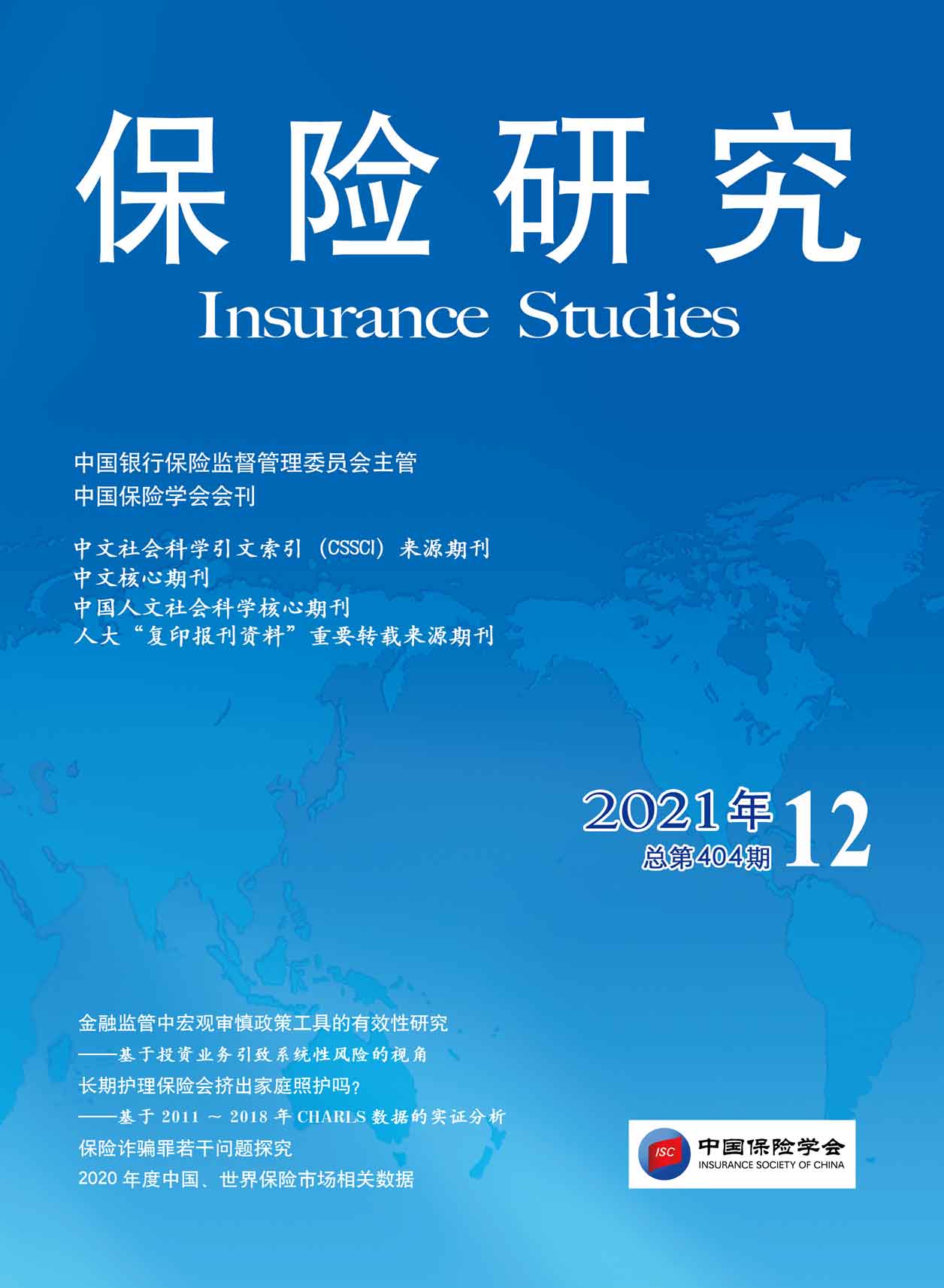
《保险研究》20211204-《环境污染责任保险与企业环境信息披露》(李敏鑫、王江寒)
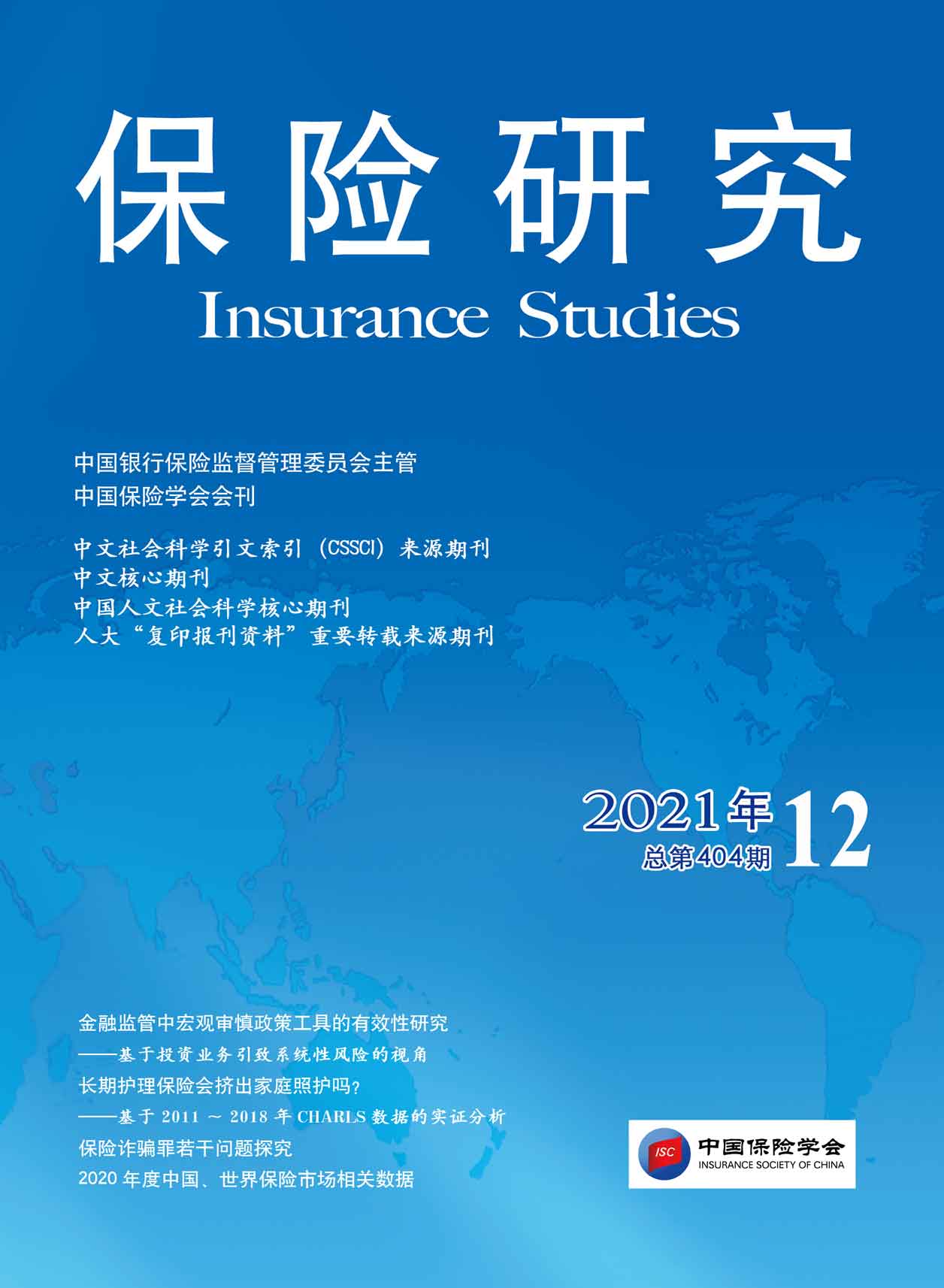
《保险研究》20211205-《保险诈骗罪若干问题探究》(曹顺明、杨润宇、赵瑛)
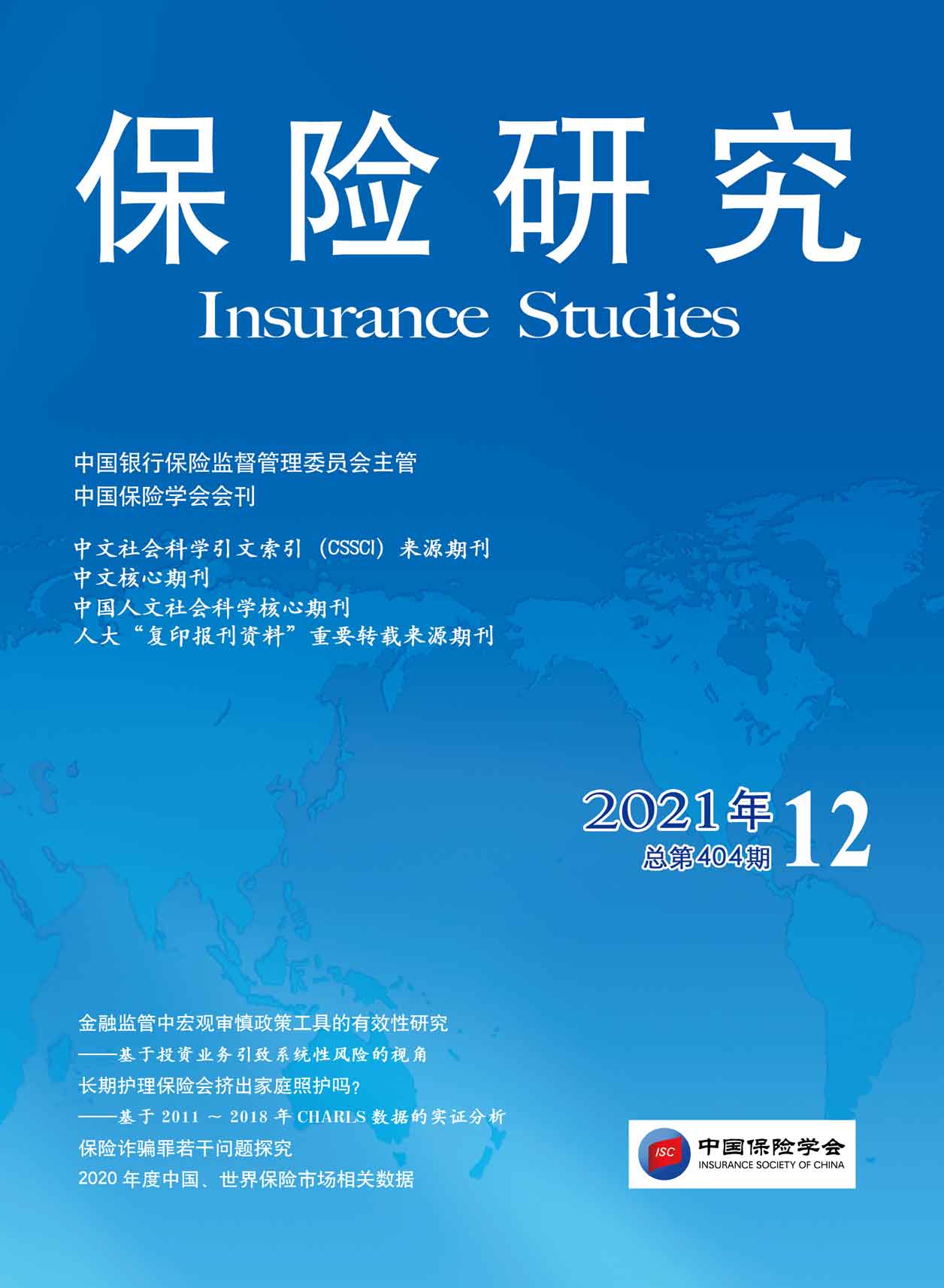
《保险研究》20211206-《<民法典>视野下保险合同第三人代缴保费问题研究》(王家骏)
